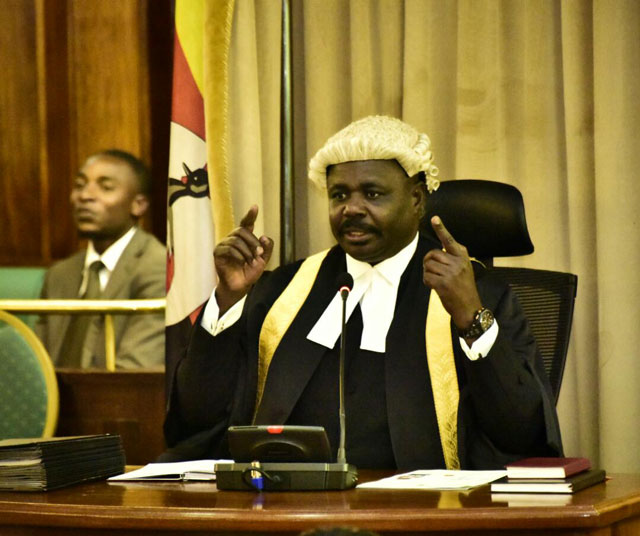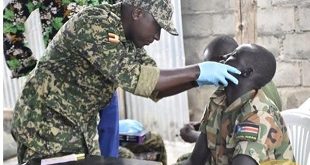
Kampala, Uganda | THE INDEPENDENT | The Deputy Speaker Jacob Oulanyah has deferred debate on the Persons for Disabilities Bill, 2018 to give room for consultations and harmonization.
The bill proposes amendments to the electoral structure for Persons with Disabilities (PWDs) representatives.
It seeks to provide for the promotion of rights and freedoms of PWDs, prohibits non-discrimination in access and provision of education, justice, health, transport and other services to persons with disabilities.
Uganda ratified the Convention on the Rights of Persons with Disabilities in 2008 and thereby wants to enact the Bill to domesticate the convention. Among the key provisions in the convention is the requirement that all States Parties shall guarantee PWDs political rights on an equal basis with others.
The Bill is proposing voting mechanisms to ensure all eligible PWDs can vote or be voted for in under a new electoral structure. Oulanyah deferred the debate on the bill on Wednesday as the chairperson of the Committee of the Whole House.
This committee considers, through deletion and additions to the Bill before passing each clause. While the House adopted the Gender Committee report on the Bill with amendments, sharp debate ensued over the proposed electoral structures for PWDs representatives at the national, district and lower levels.
The Gender Ministry that moved the Bill, proposes new electoral structures for PWDs elections. The Bill proposes that an executive committee at each level of government shall comprise five members with mobility impairment, visual and hearing disability, a youth and woman with a disability.
The executive committee of each district shall assemble at the national level and constitute four electoral colleges- North, East, West, Central or South. In addition, the four electoral colleges shall each elect an MP to represent the respective region and thereafter jointly elect the national PWDs woman representative.
While the Gender Committee remained silent on the proposal, Safia Nalule Juuko, one of the PWDs representatives opposed it. She said the proposal is unconstitutional because it discriminates candidates who will vie for PWDs woman representative by subjecting them to a national electoral college.
The other PWDs representatives will be elected by regional electoral colleges. She says the proposal breaches constitutional provisions 78, 33 and 92. Article 78 (2) provides for a parliamentary review every five years of the numbers of representatives of the army, youth, workers, persons with disabilities and other groups while article 33 (4) is on women having the right to equal treatment with men in political, economic and social activities and other opportunities.
She adds that the proposal also violates article 92 of the constitution that bars parliament from passing any retrospective law that is it is restricted from passing any law to alter court judgment as between the parties to the judgment.
Nalule thereafter moved that the current electoral structures be maintained and read out the nine structures that should replace the proposed structure in the Bill. The structure shall be composed of the five delegates at each level who shall ensure representation of different categories of disabilities and gender where applicable.
All eligible PWDs at the village level shall elect five executive members and the chairperson for the PWDs executive committee shall become the secretary for disability affairs at village level.
Also, the five PWDs executive committee members from each village shall assemble at parish or ward and elect five executive committee members, the chairperson for the parish committee shall become the secretary for disability affairs at parish level.
The sub county executive committee members shall assemble and elect two councilors-males and female to the division or sub county council. The five executive committee members from each district shall assemble as a national college and elect the MPs.
However, the Gender Committee chairperson, Alex Ndeezi who also represents PWDs, said deleting schedule six that provides for the electoral structures will mean the law will lack electoral structures.
Oulanyah noted that while the new electoral structures have received enormous support with the exception of Nalule and a few MPs, the Youth and Children Affairs State Minister, Florence Nakiwala Kiyingi has to explain why it’s only candidates for the PWDs national woman MP post will campaign across the country.
Oulanyah thereafter deferred debate on the proposal on the electoral structures to another date.
The Bill contains 51 clauses. Parliament passed 49 clauses with amendments with pending decisions on the electoral structures and interpretations of the Bill.
******
URN
 The Independent Uganda: You get the Truth we Pay the Price
The Independent Uganda: You get the Truth we Pay the Price



